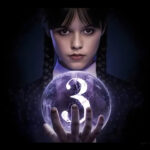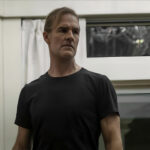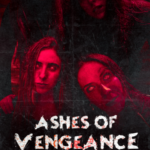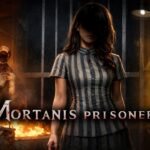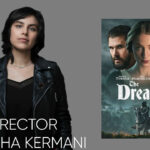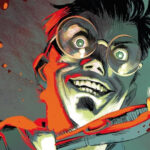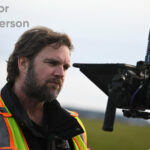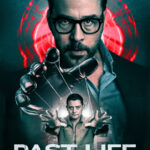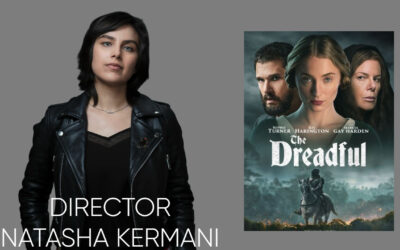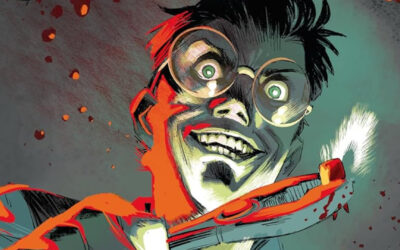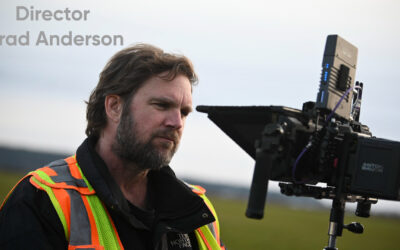A couple of days ago, I interviewed author Matt Betts and discussed his writing, the horror genre, how he got started, his love of mashing genres, plots, characters and everything else he can get his hands on. Matt has worked hard from the ground up for his success while always keeping his amazing creativity flowing.
Check out the interview below and then jump over to mattbetts.com/projects/ to dive into his extremely unique style of horror, sci-fi, and entertainment.

So my first question just to get to know where you’re coming from is what is on your shelf? What do you like to read?
M – You know, for reading I read a lot of horror and sci-fi, but one of my favorite authors is completely out of the genre. Elmore Leonard and his crime stories. The way he puts things together, his dialogue and the way he treats his characters. There’s actually a book I wrote that is kind of my homage to him. It was bringing together a little bit of horror and a little bit of sci-fi and putting in a crime story. It was just, you know, what happens if Elmore Leonard wrote horror? But my favorites recently, I’ve been reading a lot of Jonathan Maberry from The Dragon Factory and that whole series he has. Tim Wagner is another good one, he is actually an author who live an hour or two away and I see him at a lot of conferences and I just love his writing. A lot of his own work is kind of all over the place like mine, just doing what he wants to do. He writes a lot of movie tie-ins so he has done a tie-in for the XXX movie and Resident Evil.
After that, I’m kind of all over the place. If I think I’ll enjoy it, I’ll read it. It doesn’t have to be horror or science fiction, but just whatever happens to catch my glance. One of my favorite books it Devil in the White City about the serial killer H.H. Holmes. Stuff like that fascinates me with the story, but also fascinating in the way that a non-fiction book is written so smooth, so much like fiction. I would love to have something that smooth out there. My dad, my aunt, my grandpa were all huge readers so it was just natural for me to have a book in my hand. I started out with comic books, but it’s just fun to get whatever and just absorb how one person writes characters or how one person writes scenery.
It doesn’t matter if it’s a romance or whatever. I do read a bit of everything, but you know, Stephen King is kind of who I wanted to be as an author and then I figured out that that I couldn’t so I worked hard to in another direction. For me it was that is was so simple and he didn’t go nuts with elaborations and he just sold a really simple story. For me it looked like it would be really easy to do, but when I sat down to write that…it was not so easy.
G – He’s kind of like Tom Petty or Johnny Cash where I know the same three chords as they do, but they take the simplicity and do something with it that nobody else can do.
M – Absolutely! You try and sing or write a song the way that Johnny Cash or Tom Petty did and you’re not going to have that. It’s like a photocopy of a photo copy of a photo copy of a photo from way far away and you say “yeah, I kind of see what that was supposed to be.” All my efforts to emulate him were terrible. I got advice to read and absorb what other people do, but eventually you have to kind of get out there on your own and do your own thing.
G – So with so many different styles and genres that you’re into, I mean, you do poetry you do short stories, you do novels, you do different styles. Is there a different process that you go into depending on what you’re writing or is it all kind of the same process? What happens there?
M – It really depends on the project. A couple of my first books were short stories. I had kind of a kernel of an idea that expanded into a short story and they were getting rejected places. I would get good rejections where the editor would say “its well written and everything else, but we really feel like there is something more. There’s a bigger world or universe within there.” So that kind of got me to expand my short stories. But a lot of the stories I just kind of start with an image and I don’t really know where it’s going to go, but I just kind of expand and expand and a bigger picture happens. It’s kind of like drawing a dog and then realizing that the dog is on a farm and there is a tractor over here and an anvil falling on the dog or whatever. Just figuring out what is going to make that picture complete.
That’s really for the novels, but for the poetry it’s really just kind of weird what sets me off. Originally my poetry collection Underwater Fist Fight the original idea was to watch the old 1978 Godzilla cartoons. The first season on if only had like 13 episodes, but that’s all I could get my hands on so I wrote while watching the cartons. I would take one line of dialogue and that would be the title of the poem and then I would write four different styles of poems for each episode. I got all the way through that and then the publisher suddenly thought that we might get sued because I was using all of these Godzilla sources so we ended up not doing it and I wrote a bunch of new stuff. But as far as poetry it is really weird where I’ll get an idea from. In the collection there ended up being one, I was sitting at a railway crossing watching a train go by and one of the cars was spray painted “I Love Irene” and I started thinking “what if Irene never sees this? Who is Irene? Oh no, this guy spray painted a car and now, who knows?” and so that kind of got me started on Irene’s story. Another poem was watching my son crawl around when he was little. We would set up these Lego towers and he couldn’t leave the room until we knocked all these towers over and so I started mixing that with Godzilla destroying towns. Why does my son have to destroy these towers? Why does Godzilla have to destroy these towns? It became this poem called The Night Godzilla Dumped His Chick where his girlfriend is asking him why he does those things. It is actually one of the only poems I have that’s been nominated for an award.
Novels are a lot of fun. I don’t necessarily start out with a plan, I’ll just get a weird idea. One of the novels, White Anvil, which is one of my favorites. With that one, I had the idea for years and years, I had the image of a train crashed in the snow. I had this idea of like a World War 2 which was going to be a sci-fi story where they got these new weapons that they were taking to fight the war, but they couldn’t get there because they crashed. That kind f went by the wayside and I did another one where thee creatures from a mountain attacked a crashed train and that wasn’t quite working either. I had this idea of a train crash and I didn’t quite know what to do with it. It eventually changed into what White Anvil became, but it went through so many different ideas and it eventually worked out. There are piles of ideas back there that probably won’t work out, but that one did.
I did another project where I took all those little pieces that I didn’t know what to do with. They wanted me to write 50, 50-word stories and I only had about three months to do it. So I Was going through my notes at ideas that never worked out, but they were short so I could still tweak them enough to tell a little story in 50 words. So I took all these little scraps of paper I had laying around and notebooks I had and just used a lot of these ideas that I never thought would go anywhere and turned them into these little flash-pieces. That was quite the process too to try and figure out how to make those all work.

G – Yeah, absolutely, and honestly that’s a pretty big honor to get asked to do something like that. You said your poetry has been nominated for awards, you’ve been asked to do anthologies and things like that. That’s got to feel pretty good to be recognized in those ways.
M – It really does! And I think that was their third 50-Word Anthology and the people who had done the previous ones were all people who I really admired or people who I was reading anyway. I also knew the editor tangentially from some other things I had done so yeah it was pretty incredible. I think he actually contacted me right around Halloween of Thanksgiving and said he needed them by the first of the year so I kind of thought “Oh, alright, let’s think about this.” But it was a really fun exercise to see if I could write that many pieces in that short of time. And yeah, every time I get invited to do something it is surprising that they know my name and my work.
G – Yeah, that’s definitely got to feel surreal and rewarding. So with this being for a horror website let’s chat about that. What draws you to horror? Why this genre?
M – Well, my parents are probably mortified because I tell this story every time someone asks about what got me into horror or what my first horror movie was, but they took me to the drive in theatre to see Jaw. I think they probably just took me along hoping I would fall asleep in the car or something, but I saw Jaws when I was 4 or 5 and it’s not something I forgot quickly. We had a pool in our back yard and I would be in the shallow end thinking there would be a shark in the deep end at any minute. A cloud would pass by causing a shadow and I though that was it for me. So I liked being scared, but I didn’t like being scared and that kind of got me into it. My family also lived in the middle if nowhere and didn’t have much choice of what to watch, but I could get the weekend horror feature where they had like 3 or 4 old monster movies in a row and really enjoyed it. Also, I read everything I could get my hand on and good horror books were always easy for me to find. So reading so much and having family who read so much it was just natural to start and tell my own stories. My mom still has, somewhere in one of her drawers 30 or 40 years later, a comic book that I wrote and drew myself. I looked at it and it’s basically a really terrible rip-off of Scooby Doo because that’s what I watched. Scooby Do is a great gateway into horror. You had the scary creatures and the suspense, but they let you off at the end with it just being a guy in a mask. So I think that most people have some humor in being scared, their reaction is going to be a bit silly-scared and so I love to put that into my books where you’re having fun and then blindsided by something that scares you. So I went from Scooby Doo to Stephen King (chuckles)
G – Seems like a natural progression (laughs)
M – Definitely. And I think that as I got into supposedly true ghost stories and real monsters like Bigfoot…things that were real ,but we just didn’t know where they were. The things that were based in reality scared me the most.
G – I agree completely. I think diminishing or lightening the barrier between fact and fiction is where true horror comes from.
M – Exactly, like if you have a neighbor who is a little off and maybe already has a hook for a hand you get worried that something is going to happen. So yeah, that real life horror or folk tales passed down that are supposedly real life still startle people. They change over the years obviously with internet legends now like Slenderman and other things that pop up. Even legends from other cultures pop up on the internet that we may not have known before that are just terrifying.
G – So do you think that the horror genre is increasing in popularity now? I mean, it used to be kind of an underground thing. If you liked horror you kind admitted it, but not in certain circles.
M – Yeah, I think, if anything it is kind of what I enjoy doing. I think it is blending in to other things like you said. It is based a little more in reality. It’s not so much the monster from space but more the neighbor next door. I think it broadening the term. It used to be that mainstream authors didn’t want anything to do with horror, but I think now they’re seeing that it is so popular and more big name or famous authors are getting into it. And now with the internet and different apps it gives people a better opportunity to see some of the stuff that they couldn’t before. Someone may have only watched ghost movies or Godzilla movies, but now with things like Shudder they can watch a movie from North Korea that really works for them.
You see a lot more psychological horror too. And there are a lot of movies that you may start and the first half hour don’t feel like horror at all, but then it hits that big reveal and you realize it’s horror.
G – I know what you mean and I think that broadening the definition of horror perfectly explains what’s happening. Last night I watched Hereditary for like the tenth time and I remember (director) Ari Aster said that he didn’t plan on a horror movie, but wrote a family drama with a horror background. It really shows how horror can fit into any genre.
M – Oh wow. My first book is like that. Odd Men Out has zombies, but I never intended to write a zombie book. They are kind of in the background. They are there, but not really affecting anything until the wrong time. I wanted that horror element that was lurking around every corner, but could kind of be forgotten about.

G – On that note, writing and blending different genres and story lines, talk about your characters. You have to write characters with tons of different styles and personalities. How do you personally create that variety of characters and do they take a life on of heir own as the story progresses?
M – They do definitely take on a life of their own as the story progresses. So my first book took me forever to write and I went to a lot of workshops with various people doing seminars. So I started doing a thing and I’ve done it with almost every book since. I go online and I’ll have an idea for a character – what they look like and who they are – and I’ll start googling different actors and actresses and pick different people to represent each character. It may be a few people to represent one person or even just the look of someone in a certain picture. I’ll put them all into a file and then write a page or two about the character and their story. The characters may evolve as the story goes on, but I always have those pictures as references to go back to so that I can get back into their head. I have done that faithfully ever since and it has really helped me be able to think about them in more detail and focus on them individually rather than just plowing through. It has really helped me keep my characters separate. It also really helps with the editing because I can go back through and make sure I am still on track with them…still on their page.
I think a lot of writers do that, they call it their story bible or something like. Everyone does it a little differently, but most have page after page of history and background for each character. So that’s kind of how I keep my characters straight. Two or three o my books have been just one character, but the rest of them are all multiple characters and multiple points of view so it has really helped. One of the most recent ones is a continuation of an Edgar Rice Burroughs series that he last wrote back in the ’40s and I was asked to write it for the Edgar Rice Burroughs Inc. so it is considered cannon and I definitely had to get all my stuff down and present a massive outline for it. I had to do in-depth sketches for the characters and get it approved. So I kind of took all the characters from all the other Burroughs books that had come out and when I created new ones to add into my book I would go online and find some kind of creature or a mix of a few creatures. I was looking at Battlestar Galactica and old comic books for inspiration. There is one that I used from old Marvel comics called The Armadillo that I combined with a few other creatures and I had that to go back to and use as a reference. I put the pictures on the wall so I could see them while writing and that really worked for me. So having that story bible has really saved me character-wise to keep the ideas in my head.
G – That is really interesting. I love the idea of having a story bible or a character bible to keep it all on track.
M – Yeah, and when I finish it is always hard to take the pictures down or put the bible away.
G – Yeah! It would be like saying goodbye It is sad in way. I know that when I have written things here and there, the characters may only be on paper, but they have life.
M – Absolutely! So it’s kind of weird because my first book, Odd Man Out, came out in 2013 and they liked it so much that I got a contract with that for three more books with the stipulation that one of them was a sequel. So I had several ideas for a sequel, but I write the other books first. So the sequel came out in 2020. So it had been around 10 years since I started working on those characters and it was kind of fun to revisit them an get reacquainted, but it was surprising how many details I had forgotten and had to get to know them again. I kind of wish that I had written them back to back, but it was nice to have that 10 years of growth between the two books.
G – Okay, so talk about that 10-years of growth. If you could go back and talk to your younger writing self, what kind of advice would you give? What would you tell yourself?
M – Well that’s the weird thing, I kind of write when I was a kid and a bit in college, then I took some time off to get a “real job” and then I moved to Columbus and joined a writers group where we all kind of learned together. What I found was that writing had changed so much from when I started. There aren’t as many big publishers, but there are a lot more small publishers out there. The technology has just moved so fast that self-publishing is now so much easier. My first book of poetry I had done myself and I was working a job where I learned how to paginate pages and edit so I did all that myself and I had a local studio print it for me. It came out great and I was selling it basically out of my trunk at different events and eventually put it online and then a publisher came up and said that he would like to publish it for me, but it was all a big pain to do it all yourself. Now you have so many more ways of promoting yourself and getting your work out there. You don’t have to go door to door selling your book because those other avenues are so easy now. So my advice really would be to not worry about where your book will end up, but just write the best story you can. I got to a point where I was done with a book, but there was more editing to do, I probably should have had beta-readers, but I was just in such a hurry to get it out there. I should have gotten a professional editor or someone to go through it. I had been trying to get the book out there for ages, but I did get some good rejections where thy suggested what went wrong or what it needed. I took what they said to heart and worked on it. But I think that had I really known what I was doing and taken more time it would have gone better. I think that would be another piece of advice is not to rush it, have as many eyes on it as you can before sending it off to publishers.

G – Yeah that’s good advice, take our time and take it slow.
M – Right. And today, my advice for today would be to look at putting it out yourself or look at some of the smaller presses. They may not have the budget to get it out as much as the big guys, but they will fight for their books and get them out there. That being said, no matter where you end up, you’ll have to do some leg work and get your work out there.
G – I like that you really had to work hard to get to where you are. Like you said, you were selling books out of the trunk of your car. I think that’s important.
M – I think so too. It was just one of those things, I mean, I didn’t know much about science-fiction-horror-poetry, who does? But it was fun to get into it and then try and sell people on it. You really learn to market the crap out of yourself when you are selling a book about Godzilla poetry. It’s fun though, I made friends and I made my money back so I was happy. Covid has really hurt that because there are no conference and events so it has changed how authors have to get out there. But definitely doing it all yourself makes you appreciate a lot of things.
G – So tell me, these groups that you’re a member of Science Fiction Poetry Association, Pennwriters, and The Ohio Poetry Association, have they been able to help push that and get your books and name out there?
M – They mostly help teach things. It was kind of funny, I went to my first Pennwriters conference, it is a very big conference and moves between a few cities. I walked in and my publisher was there waiting, my editor and as soon as I walked in they walked me right over and introduced me to Jonathan Maberry. So it was great to make that connection within five minutes of writing. I have been lucky to teach a couple of workshops, but attending the workshops have been terrific. You never know what kind of workshops will be at what conference so there can be some on just writing in general or very specific ones. So Pennwriters is great for all that general information and conferences. The Horror Writers of America conference is amazing to meet all these horror writers and what’s happening in the horror world. We talk about what’s failing and what’s working. It is great to really build that comradery and they kind of know you and look out for you. It is a great place to learn things and they have an award show every year so getting on their list does really great things for your work. All of the groups and conferences give you a little something different and you learn a little something more. They are all very worth while for sure.
G – It is really a tight-knit community, I mean it is a huge community, but everyone seems very welcoming and there doesn’t seem to be as much competition between writers.
M – Right, I may be wrong, but I feel like Sci-Fi is a little more competitive than horror. With horror they are a little more supportive with less cliques. They are happy to have you working on the genre and promoting the genre. Even if they have a zombie book and you have a zombie book , they’re not going to be the same so it’s not a real competition.
G – Yeah, people are just happy to see the genre growing. Just a couple of quick questions left here. To switch gears, one question I like to ask is: What you would recommend to non-horror fans to get them into horror?
M – That’s a tough one. I think a lot of people, we were talking about Stephen King, a lot of people like to bring up things he has done that aren’t necessarily horror. You look at Stand by Me or Shawshank Redemption are books and films that aren’t necessarily horror, but they allow people to look at him as a story teller and not just a horror writer. Sometimes I can be very much a baby with horror, watching it through my fingers, so I understand people being hesitant or scared, but those movies are good ways to see the validity of story telling. I think it is also thee movies that people may not classify as horror, but when you analyze them you recognized the common horror tropes. There are a lot of movies that are scary or intense like horror, but it’s just packaged differently. Even with comedies like Shawn of the Dead are graphic, but they are funny as hell. So I think that finding that mash-up that appeals to people is the key. I was watching Colossal, have you ever seen that?
G – No, I don’t thing I have.
M – It’s not technically horror, but it’s about a relationship. The two meet up and strike a romance, so there is a real element of romance, but there is the very real and dark side of they’re both alcoholics and they have a terrible relationship, but at some point they are standing in a sandbox and they get into a fight. At the same time in Japan a giant monster appears and it is mimicking exactly what he does. So they finish the fight and go to their homes and she sees on the news this monster doing what she realizes is kind of what the guy was doing. So I don’t know if it’s sci-fi or horror or romance, but it definitely has all of those elements and is kind of a weird gateway.
G – That sounds really cool. I’ll have to check that out.
M – Yeah, it’s streaming somewhere and it took me by surprise.
G – I’ll look for it for sure. So to wrap up, what have you got going on right now? What do you want readers and potential readers to know?
M – Well I am working on something that I don’t quite have a publisher for yet, but it’s kind of sci-fi and horror mashed up. It;’s another one of those where I had the image in my head for the longest time and I didn’t know what to do with it. I am mashing up the book The Wonderful Wizard of Oz with the book Heart of Darkness (which became Apocalypse Now). So instead of following the yellow brick road, in my book she is following the yellow river. It’s funny because as I was reading and mapping these two books out there were a lot of little weird things that matched up and made sense together. So she I am using a lot of Chinese and Japanese legend and there is also a little bit of cosmic horror so I am just mixing up a bowl of everything. Like I said it started with a certain image and then just finding all the things that would work, but wouldn’t take the readers too far away from the original thoughts. So I am done with that and I am editing it.
I have a podcast out here called Something From Nothing where I interview creative people like authors and poets that I know. I have interviewed some actors. Did you ever watch Mystery Science Theatre?
G – Oh yeah, for sure.
M – Well my first guests, and I was thrilled that they said yes, were the original mad scientists. So they came on and I was so excited. It’s really a podcast about finding people’s origin stories. It was fin to talk to them in particular to see how they got from doing a puppet show to what it became. It is a blast! I have a background in radio so to be able to do that and interview people has been something I really enjoy.

G – Well I’ll check that out for sure too! And, like I said before the interview, I was looking through your list of books and thinking how man y of them sound really cool and unique.
M – Thanks! I am always excited when someone is excited. I like to hear their opinions even if they don’t like it, I want to know what you did or didn’t like and what worked or didn’t work for you. I love getting reactions to it.
G – Well I am definitely excited to check them out and I’ll post some reviews on the website as well.
M – Great! Thanks, I really appreciate it.
G – No worries. Anything else you want to say for the listeners/readers?
M – Nope, I think we covered it.
G – I think so to. Thank you so much for your time, this was great.
M – No problem. Thank you so much and have a great day.
G – You too, thanks again.
Filmmaker Natasha Kermani Discusses ‘The Dreadful’ In Our Interview
When it comes to female writers and directors, there just aren't enough of them. It's an important point of view and...
